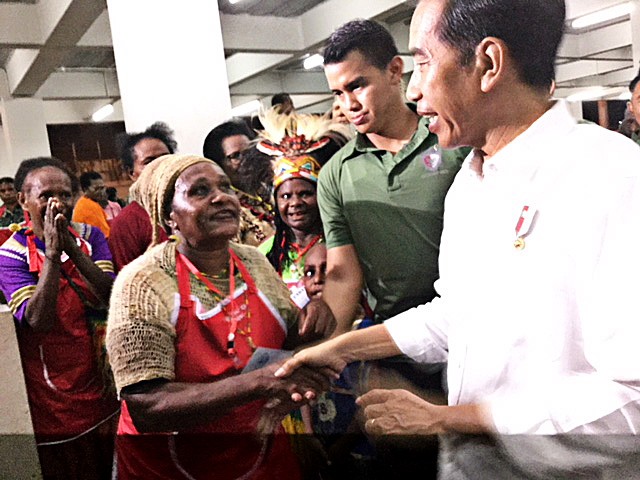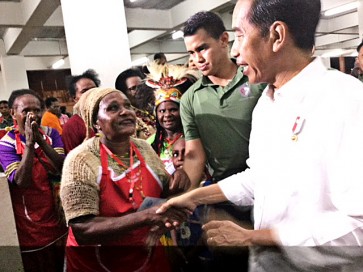Popular Reads
Top Results
Can't find what you're looking for?
View all search resultsPopular Reads
Top Results
Can't find what you're looking for?
View all search resultsWhy Jokowi wins in Papua: Cultural lens
The provisional results for Papua are approximately 78 percent for Jokowi and Ma’ruf Amin and 21 percent for Prabowo Subianto and Sandiaga Uno.
Change text size
Gift Premium Articles
to Anyone
B
ased on the ongoing quick count results, the incumbent Joko “Jokowi” Widodo has won the presidential election in 20 out of 34 provinces and also the Indonesian votes overseas. Most interestingly, although not unexpectedly, Jokowi won in both Papua and West Papua. The provisional results for Papua are approximately 78 percent for Jokowi and Ma’ruf Amin and 21 percent for Prabowo Subianto and Sandiaga Uno.
Overall votes for Jokowi had increased by about 6 percent from the 2014 election. Likewise, in West Papua in 2014 Jokowi and Ma’ruf collected 70 percent of the votes and Prabowo and Sandiaga gained 29 percent, meaning Jokowi’s 2019 vote tally rose by about 3 percent from the previous presidential election.
In the 2014 election, Jokowi won 17 regencies while Prabowo only won three regencies across Papua. Whereas in West Papua, Jokowi took almost all votes in the 11 regencies, without leaving even 1 percent for Prabowo.
So why has Jokowi gained so many votes in Papua and West Papua? There have been many recorded incidents of violence and human rights violations in Papua that have not been thoroughly investigated. Also, the answer that Jokowi won the Papuan votes because of the ongoing construction of the trans-Papua infrastructure and road is too simplistic.
The problem is not in infrastructure, but in how people place their values and world views on development itself. They are often ambivalent.
Various examples of anthropological research about the Pacific regions, including the Papua highlands, indicate that all spheres of life are covered by the obligation to give, receive and to return. Papuan society creates relationships through collective exchange actions. Rituals and ceremonies are always tinged with gift exchanges. It is offensive for the recipient to reject the gift because giving is part of friendliness and an invitation to friendship.
Sophia Chau’s latest ethnographic study of the Marind community in Merauke in 2018 shows oil palm plantation companies use this cultural capital of exchange to open businesses. The company gives people money and pigs and arranges food for parties.


















